The giant floating solar farm on the outskirts of London has completed one year of operation
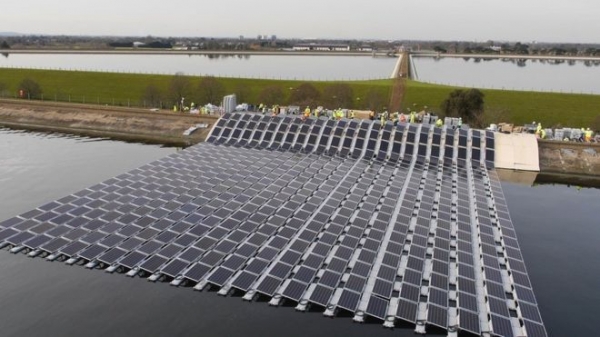
The structure is Europe’s largest, covering an area equivalent to eight football pitches
The structure is Europe’s largest, covering an area equivalent to eight football pitches
Europe’s largest floating solar farm has been operating since March 2016. Being installed on Thames Water’s Queen Elizabeth II reservoir near Walton-On-Thames, it is invisible to all but Heathrow passengers and a few flats in neighboring estates. However, its 23,000 solar panels produce enough electricity to power the utility’s local water treatment plants, which provide clean drinking water to around 10 million people in greater London and the south-east of England. The panels are mounted on a pontoon consisting of 61,000 floats and 177 anchors, and cover an area of 57,500 m2 in total (around a tenth of the surface of the reservoir). They have a capacity of 6.3MW and were initially constructed in sections before being towed out into the reservoir.
The pros of floating solar arrays
“One of the major benefits to floating solar is that there is all this space in areas of London or other cities, where you have a large area on top of the reservoir that’s not being used,†says Liv Harder from Lightsource Renewable Energy, the company that installed the floating panels. The good news is that the cost of solar panels has gone down nine times in the last five years, and the floats themselves also continue to go down in price, making such projects more affordable. Apart from that, installing solar arrays on water does not require planning permission, unlike similar projects on land.
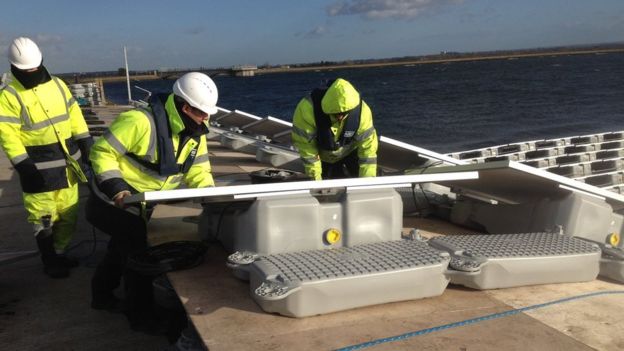
Photo source: Lightsource
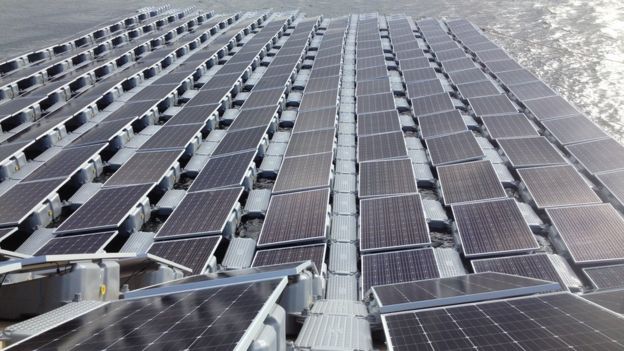
Photo source: Lightsource
Source: The Guardian
Source: The Guardian
Want to read more like this story?
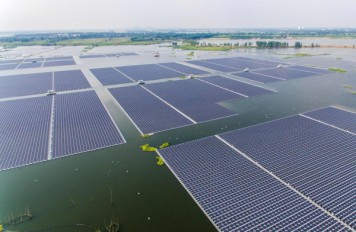
China inaugurates the world’s largest floating solar farm
Jul, 18, 2017 | NewsThe country aspires to lead the international efforts against climate change The country aspires to...
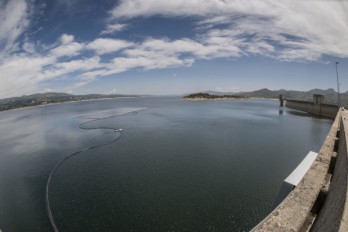
The world’s first hybrid hydro and floating PV power plant opens in Portugal
Sep, 08, 2017 | NewsΑ 220-kW PV installation has been deployed on a hydroelectric dam on Portugal’s Rabagão River. This...
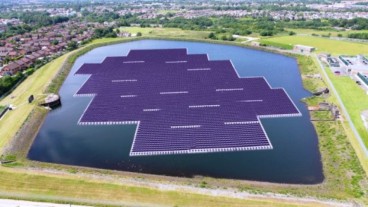
Video: The largest floating solar farm in Europe is under construction
Oct, 30, 2015 | NewsThe construction of the largest floating solar park in Europe has begun in Godley reservoir located...
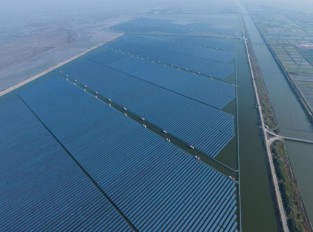
A 200MW solar park floats on top of a fish farm in China
Feb, 01, 2017 | NewsAn impressive application of solar panels An impressive application of solar panels Located in C...
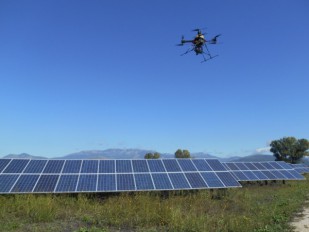
Drones may help in designing future solar farms
Apr, 18, 2017 | NewsThey can get the job done more quickly and efficiently, while reducing the costs involved They ca...
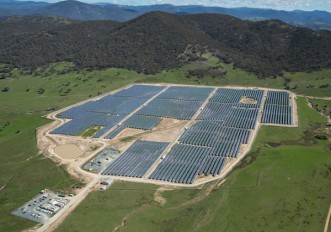
2016 was a milestone for large-scale solar energy projects in Australia
May, 15, 2017 | NewsWind power has also gained ground in the country as its cost has fallen Wind power has also gaine...
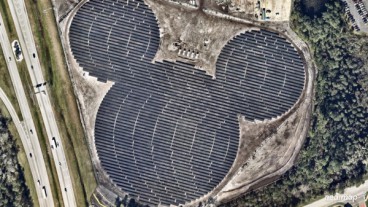
Solar farms can be really impressive!
Mar, 22, 2016 | NewsTo fully appreciate them, however, you will need a helicopter… Here are some interesting e...
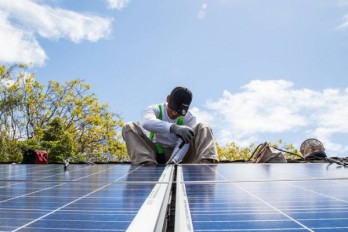
Domestic Solar Panels With The Highest Efficiency In The World
Oct, 07, 2015 | NewsThe American company SolarCity revealed a new solar panel which is described as "the most efficient"...

High-efficiency solar panel cost fell 37% in 2017
Mar, 14, 2018 | NewsThe falling price is driven by several factors The falling price is driven by several factorsAccord...
Trending
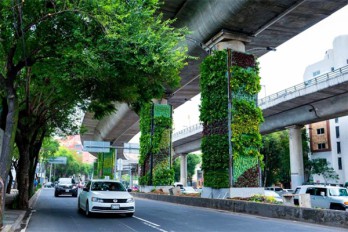
Vertical gardens in Mexico City to combat pollution

Characteristics of Load Bearing Masonry Construction

Taipei 101’s impressive tuned mass damper
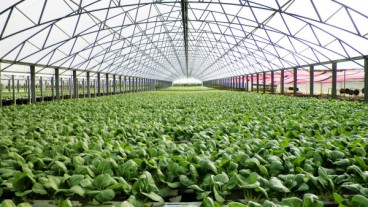
Dutch greenhouses have revolutionized modern farming

Saudi Park Closed After 360 Big Pendulum Ride Crashes to Ground, 23 injured

King Salman Gate unveiled adjacent to Mecca’s Grand Mosque

The Line at Neom faces feasibility reassessment while construction continues

